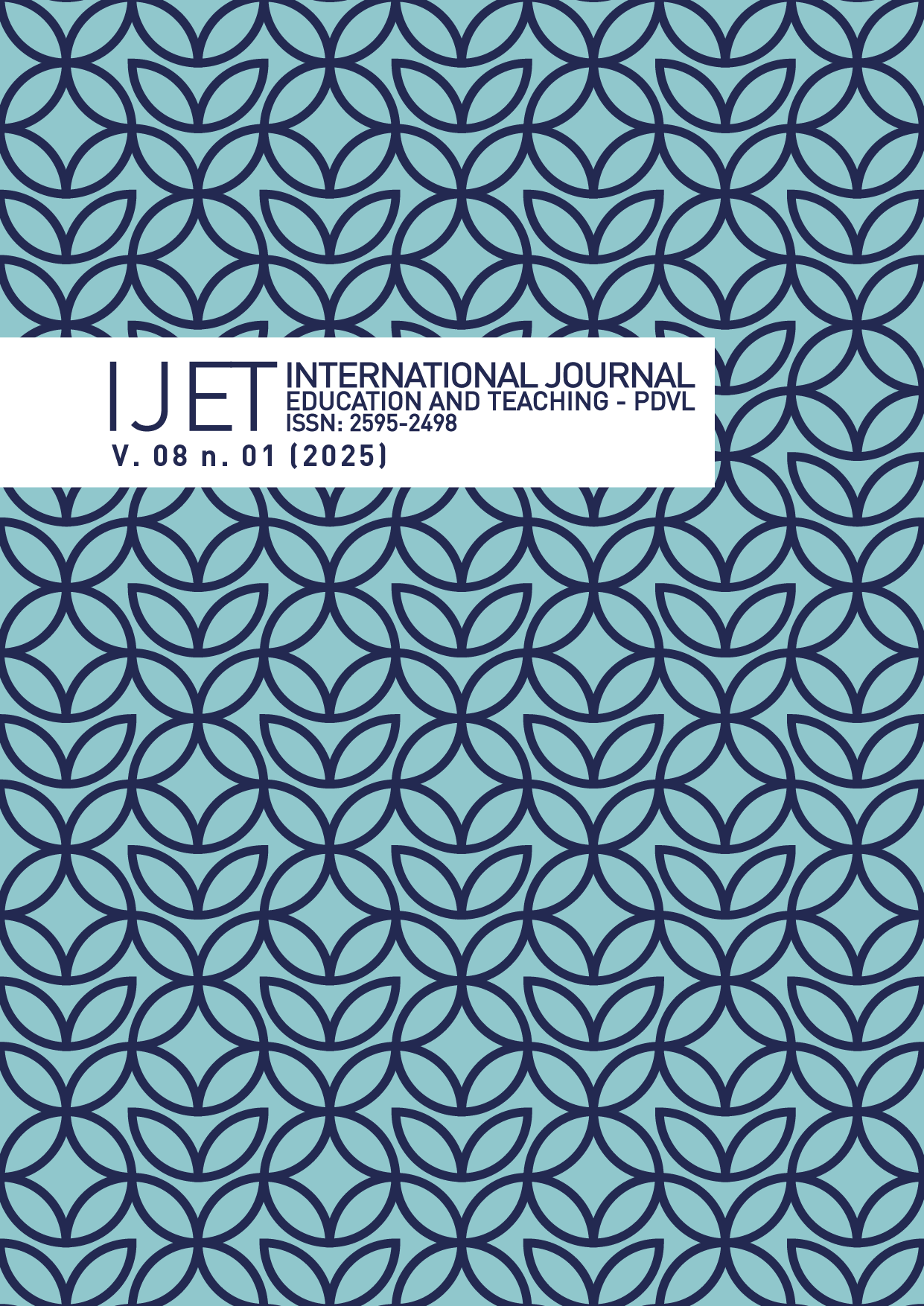CONTENT ANALYSIS ON THE APPROACH TO CHEMISTRY IN TEXTBOOKS OF INTEGRATIVE PROJECTS IN THE NEW PNLD-2021
DOI:
https://doi.org/10.31692/2595-2498.v8i1.254Keywords:
Textbook, Integrative projects, New High School, Content analysis, Natural sciencesAbstract
The textbook is an important tool in the teaching-learning process, as it represents the main, if not the only, source of work as printed material used in the classroom in several schools in the public education network, presenting itself as a basic resource for students and teachers. In consideration of this, with the New High School Reform, integrative projects became mandatory in the curriculum of some high school schools and, therefore, textbooks underwent changes in the way they approach content. In 2021, the PNLD underwent more changes, with the main objective of bringing teaching materials to schools that contribute to and enable the implementation of New Secondary Education. The first materials chosen by the schools were the works of Integrative Projects and Life Project, an unprecedented format, which promotes work in the classroom aligned with the BNCC of High School, aiming at the integral development of the student and the development of perspectives. The general objective of this work was to analyze the approach to Chemistry content in textbooks of Integrative Projects in the area of Natural Sciences in the new PNLD-2021 (National Book and Teaching Material Program). The execution was carried out through content analysis in which three basic steps were followed, namely pre-analysis, inference and interpretation. Therefore, it was found that, of the thirteen books analyzed, only two contained a project directly linked to Chemistry and the mandatory integrative themes (STEAM (Science, Technology, Engineering, Arts and Mathematics), Youth Protagonism, Media Education and Mediation of conflicts) were present in the projects, but not fully applied to Chemistry content.
Downloads
References
AUGUSTO, T.G.S.; CALDEIRA, A.M.A. Dificuldades para a implantação de práticas interdisciplinares em escolas estaduais, apontadas por professores da área de ciências da natureza. Investigações em Ensino de Ciências – V12(1), p.139-154, 2007.
BARDIN, L. Análise de Conteúdo. Lisboa: Edições, 70. 1977.
BEYER, E. C.; UHMANN, R. I. M. Potencial da sustentabilidade em livros didáticos projetos integradores da área de ciências da natureza. In: I Simpósio de Pós-Graduação do Sul do Brasil, Universidade Federal da Fronteira Sul, 2021. DOI: https://doi.org/10.37781/vidya.v42i1.4196
BRASIL. Ministério da Educação. Base Nacional Comum Curricular. Brasília-DF: MEC, 2018.
CÂMARA, R. H. Análise de conteúdo: da teoria à prática em pesquisas sociais aplicadas às organizações. Revista Interinstitucional de Psicologia, Brasília, v. 2, n. 6, p.179-191, dez. 2013.
CURY, C. R. J. O livro didático como assistência ao estudante. Revista Diálogo Educacional, Curitiba, v. 9, n. 26, p.119-130, 2009. DOI: https://doi.org/10.7213/rde.v9i26.3682
DOMINGUINI, L.; ORTIGARA, V. Análise de conteúdo como metodologia para seleção de livros didáticos de química. Encontro Nacional De Ensino De Química, Brasília, 2010.
FARIAS, E.S.; OLIVEIRA, A.C.; OLIVEIRA, J.C.C. Aulas de reforço de química na 1ª série do ensino médio do IFRR – Campus Novo Paraiso. Norte Científico, v.6, n.1, dezembro de 2011.
FREITAS, K. N; RODRIGUES, H. M. O livro didático ao longo do tempo: a forma do conteúdo. DAPesquisa, Florianópolis, v. 3, n. 5, p. 300 – 307, 2008. DOI: https://doi.org/10.5965/1808312903052008300
FRISON, M. D. Livro didático como instrumento de apoio para construção de propostas de ensino de ciências naturais. VII Encontro Nacional de Pesquisa de - Educação em Ciências, Florianópolis, 2009.
MAGALHÃES, W. A. M.; PEREIRA, A. L. S. MAGALHÃES, W.; PEREIRA, A. L. O uso da aprendizagem baseada em problemas no ensino técnico: projetos integradores como experiência interdisciplinar. Educitec, Manaus, v. 5, n. 12, p. 274-287, dez. 2019. DOI: https://doi.org/10.31417/educitec.v5i12.836
MANTOVANI, K. P. O programa nacional do livro didático – PNLD: impactos da qualidade no ensino público. Dissertação de mestrado. Programa de Pós-Graduação em Geografia Humana, Universidade de São Paulo, São Paulo, 2009.
NUNES, R. R.; BENETTI, F.; PIGATIN, L. B. F.; MARTELLI, L. F. A.; REZENDE, M. O. O. Experimentos em Química do Solo: Uma Abordagem Interdisciplinar no Ensino Superior. Rev. Virtual Quim., v. 6, n. 2, p. 478-493, 2016.
ROSA, G. B. A organização curricular do curso Técnico em Química integrado ao ensino médio: caminhos para construção do currículo integrado. Caderno Pedagógico: Projetos Integradores, Fortaleza, 2020.
SANTOS, F. F. O professor e o livro didático: implicações metodológicas na prática de ensino em geografia. In: Encontro Internacional De Formação De Professores E Fórum Permanente De Inovação Educacional, Sergipe - Paraíba, v. 9, 2016.
SANTOS, V. A.; MARTINS, L. A importância do Livro Didático. Candombá: Revista Virtual, Salvador, v. 7, n. 1, p. 20-33, dez. 2011.
SILVA, M. V. Da.; J. M. C. T. A bncc e as implicações para o currículo da educação básica. In: Congresso Nacional da Diversidade do Semiárido. Anais CONADIS. Campina Grande: Realize Editora, 2018.
ZACHEU, A. A. P.; CASTRO, L. L. O. Dos tempos imperiais ao PNLD: a problemática do livro didático no Brasil. Jornada Do Núcleo De Ensino De Marília, v. 14, p. 1-12, 2015.

Downloads
Published
Conference Proceedings Volume
Section
License
Copyright (c) 2025 Maria Luiza de Brito Vieira, Antonia Débora Cardoso Silva, Joselia dos Santos Pinho, Elenice Monte Alvarenga (Autor)

This work is licensed under a Creative Commons Attribution 4.0 International License.










